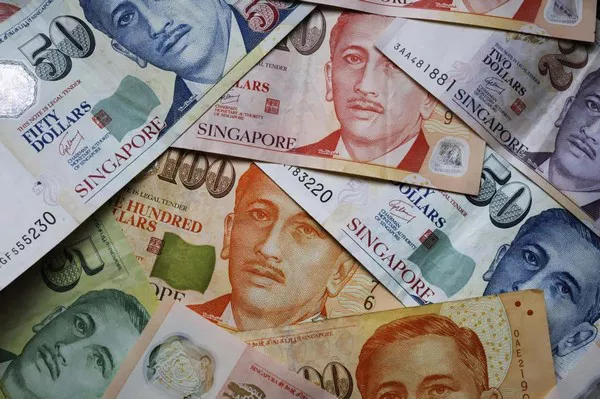Singapore, a global financial hub and a melting pot of cultures, boasts a robust economy supported by a stable currency known as the Singapore dollar (SGD). In this comprehensive article, we delve into the intricacies of the Singapore dollar, its history, significance in the global economy, exchange rates, and the underlying factors that influence its value.
Introduction to the Singapore Dollar
Historical Development
The Singapore dollar has a storied history that dates back to the colonial era. Originally pegged to the British pound, Singapore transitioned to a managed float exchange rate system after gaining independence in 1965. Over the decades, the Monetary Authority of Singapore (MAS) has meticulously managed the currency to ensure stability and facilitate economic growth.
Symbol and Abbreviation
The symbol for the Singapore dollar is “$”, similar to many other currencies around the world. Its abbreviation, “SGD,” is derived from the country code “SG” and the initial letter of “dollar.” This standard format is used in financial transactions, currency exchanges, and international trade to denote the Singapore dollar.
Importance of the Singapore Dollar
Economic Significance
As one of Asia’s leading financial centers, Singapore’s economy is highly dependent on its currency. The SGD plays a pivotal role in facilitating domestic transactions, investments, and international trade. Its stability and credibility contribute to Singapore’s reputation as a safe haven for investors and businesses.
Reserve Currency Status
While not a major reserve currency like the US dollar or the euro, the Singapore dollar holds significance as a reserve currency in Asia. Central banks and financial institutions in neighboring countries hold SGD as part of their foreign exchange reserves, reflecting confidence in its stability and liquidity.
Overview of Monetary Policy
Role of the Monetary Authority of Singapore (MAS)
The MAS is Singapore’s central bank and monetary authority responsible for overseeing monetary policy, issuing currency, and maintaining price stability. Through its monetary policy decisions, the MAS aims to promote sustainable economic growth, manage inflation, and ensure financial stability.
Exchange Rate Regime
Singapore operates under a managed float exchange rate regime, where the SGD’s value is determined by market forces but subject to occasional intervention by the MAS. This flexible approach allows the currency to adjust to external economic conditions while providing stability against excessive volatility.
Factors Influencing the Singapore Dollar’s Value
Economic Indicators
Several key factors influence the value of the Singapore dollar in the foreign exchange market:
GDP Growth: Economic expansion signals robust demand for SGD-denominated assets.
Inflation Rate: Low inflation maintains purchasing power and currency stability.
Interest Rates: Higher interest rates attract foreign investment, increasing demand for the SGD.
Trade Balance: Surpluses indicate strong exports, boosting demand for the SGD.
External Factors
Global Economic Conditions: Changes in global growth, trade tensions, and geopolitical events impact investor sentiment and currency flows.
Currency Market Sentiment: Speculation and market sentiment drive short-term fluctuations in exchange rates.
Commodity Prices: Singapore’s status as a major trading hub for commodities influences the SGD’s value, particularly for oil and gas.
Exchange Rates and Market Dynamics
SGD Exchange Rate Trends
The SGD exchange rate fluctuates daily against major currencies such as the US dollar (USD), euro (EUR), and Japanese yen (JPY). Investors, businesses, and travelers monitor exchange rates to optimize financial transactions and mitigate currency risk.
See Also: Is SGD Pegged to USD?
Currency Interventions
The MAS occasionally intervenes in the foreign exchange market to stabilize the SGD’s value against excessive volatility. Intervention tools include buying or selling SGD reserves and adjusting monetary policy measures to influence market expectations.
Practical Applications and Use Cases
Domestic Use of SGD
In Singapore, the SGD is widely accepted for daily transactions, retail purchases, and financial services. Banknotes and coins in various denominations facilitate seamless payments across diverse sectors, from retail to hospitality.
International Trade and Finance
The SGD plays a crucial role in Singapore’s international trade and finance activities. Businesses use SGD-denominated invoices, contracts, and trade finance instruments to conduct cross-border transactions with counterparties worldwide.
Singapore Dollar in Global Finance
Financial Markets
Singapore’s financial markets, including the Singapore Exchange (SGX) and money markets, feature SGD-denominated instruments such as bonds, equities, and derivatives. These markets provide liquidity and investment opportunities for domestic and international participants.
Offshore SGD Market
The offshore SGD market refers to transactions conducted outside Singapore but denominated in SGD. Offshore financial centers and institutions facilitate SGD liquidity, supporting cross-border lending, investments, and capital flows.
Role of Technology and Innovation
Digital Payment Solutions
Singapore embraces fintech innovations, including digital payment platforms and electronic wallets that facilitate fast, secure SGD transactions. These advancements enhance convenience for consumers and businesses in an increasingly digital economy.
Blockchain and Cryptocurrencies
Blockchain technology and cryptocurrencies have gained traction in Singapore, with initiatives to explore digital SGD tokens and blockchain-based financial services. These developments aim to enhance efficiency, transparency, and financial inclusion.
Conclusion
The Singapore dollar stands as a testament to Singapore’s economic resilience, prudent monetary policies, and global connectivity. As a stable and trusted currency, the SGD facilitates domestic prosperity, international trade, and financial market integration. Understanding its code, significance, and dynamics provides insights into Singapore’s role in the global economy and its ongoing commitment to financial stability and innovation.
Related Topics:
- What is the Dollar Sign for SGD?
- What is the Ticker Symbol for Singapore Dollar?
- Why Singapore Exchange Rate is High?


